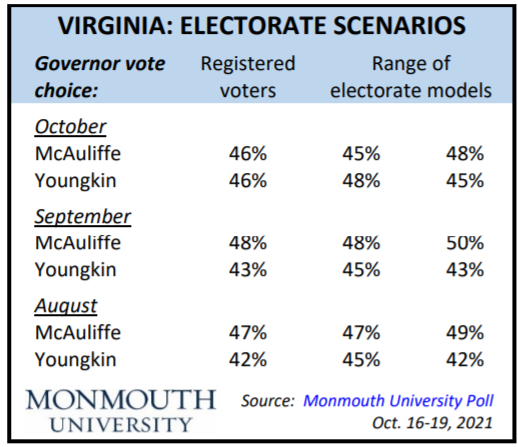Live results for Virginia are on this page. Use the links below for other Election Day results.
| New Jersey >> | Mayoral >> | U.S. House >> | State Legislative >> |
Virginia
There are races for elected statewide offices and for the House of Delegates, the Virginia State House. By winning the governorship or taking control of the House of Delegates, Republicans can break the Democratic state government trifecta. The Virginia State Senate will next be contested in 2023.
Polls close at 7:00 PM ET.
Governor


